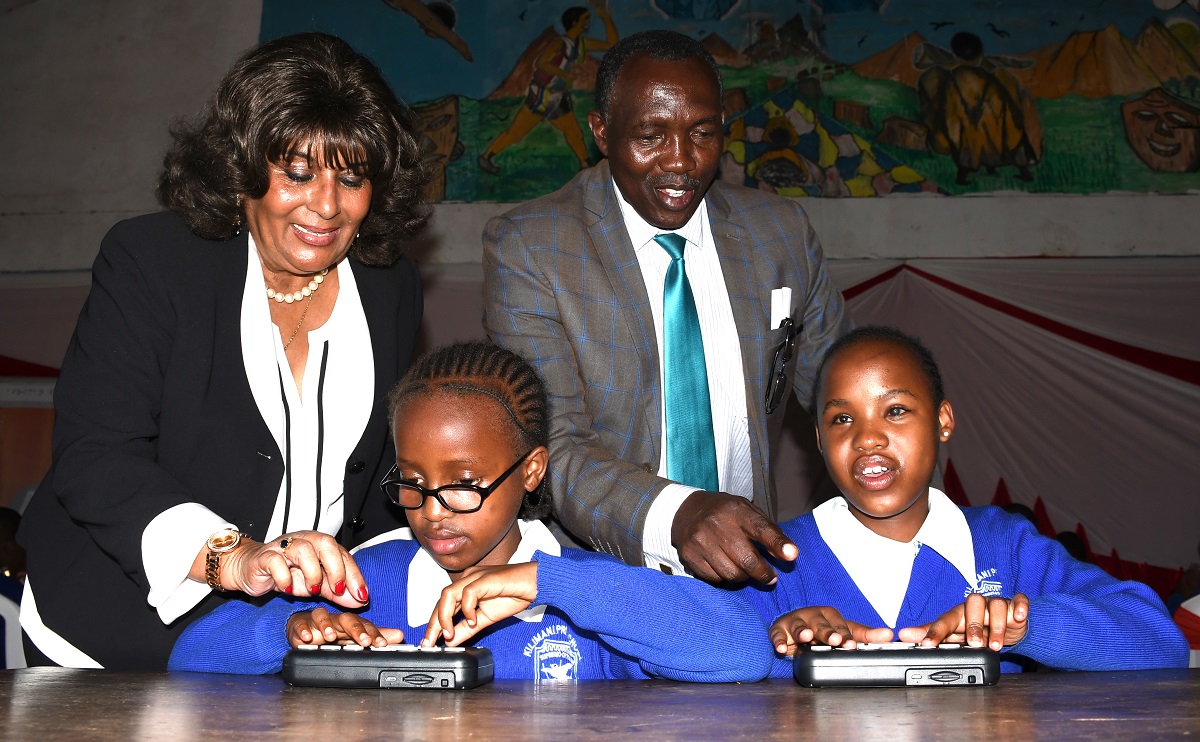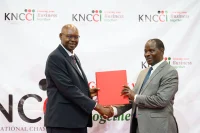UN statistics show that there are over 600 million persons with disabilities worldwide – 400 million of whom live in developing countries while 80 million in Africa.
WHO says about 40% of Africa’s population consists of people with disabilities, including 10-15% of school-age children.
Majority of Africans with disabilities are excluded from schools and opportunities for work. School enrolment for the disabled is estimated at no more than 5-10% and as many as 70-80% of working-age people with disabilities are unemployed.
See: Celebrity blind musician exposes heartless leaders and institutions
The social stigma associated with disability results in marginalization and isolation, often leading to begging as the sole means of survival.
Empowering Visually Impaired Pupils
Nearly 200 grade three visually impaired pupils will be able to pursue education using the latest technology like Bluetooth in 34 schools countrywide.
Through an ‘Orbit Reader 20′ – a paperless and portable device – they will access the entire study syllabus and Competency-Based Curriculum content just like their sighted peers.
What makes it a game-changer is that it is affordable with a retail price of Sh 65,000, unlike the classic Braille machine which costs Sh 100,000 and is cumbersome to use as it requires rims of papers and expensive bulky textbooks.
Also read: Julie Gichuru: “I Had no Home to go Back to”
The project is spearheaded by Kilimanjaro Blind Trust Africa (KBTA) working with the Ministry of Education and Citi Bank Kenya, among others.
So far 600 devices benefiting 60 schools countrywide valued at Sh 45 Million have been rolled out. The latest beneficiaries are drawn from schools in Nairobi, Meru, Kiambu, Mombasa, Kwale, Kitui, Baringo, Elgeyo Marakwet, Kisii, Kisumu, Siaya, Bomet, West Pokot, Turkana, Machakos, Kakamega, Wajir, Garissa, Kericho, Isiolo, Narok, Mandera, Kajiado, Nakuru and Homabay.
“Unlike the traditional 6.5 kg braille machine used in most schools, the ‘Orbit Reader 20’ is a digitally portable device which will ease challenges the visually impaired learners face with the costly braille equipment. We are bridging the gap for the blind and visually impaired to access education using latest reading technology,” said Suparna Biswas, Executive Director, KBTA.
The device has proven secure for exam purposes ensuring fairness and inclusion for visually impaired learners. With this device, the visually impaired learners have the same access to education and choice of careers in their adult lives.
Read: Posta turns a blind eye to the visually impaired
“We will continue to work with such organizations like KBTA to promote equal access and fairness to education for the blind and visually impaired learners,’’ said the Chief Administrative Secretary, Ministry of Education, Mumina Bonaya.
KBTA is a registered charitable Trust in Kenya which promotes Braille literacy and helps to improve the lives of learners with visual impairment in Kenya, Tanzania, Uganda, and Malawi.
Their programmes ensure that every blind learner in East Africa and Malawi has access to a working Braille machine, affordable quality Braille paper, and learning materials.













Leave a comment